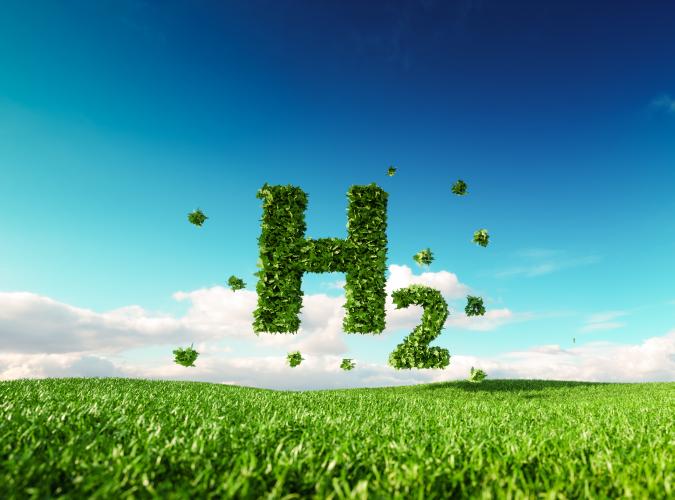Hydrogen storage
Hydrogen storage facilities are essential for the success of the energy transition. One perspective for the future is storage in salt caverns.
Why store hydrogen?
As a versatile energy carrier, hydrogen can make a significant contribution to the energy transition. It provides a crucial building block for decarbonising the economy and achieving the European climate targets. The market ramp-up of hydrogen is already in full swing. However, the development of a comprehensive hydrogen infrastructure needs to be advanced much more strongly. Germany faces particular challenges: in the north-west of the country there are large industrial clusters that will need large quantities of hydrogen in future. This will require a comprehensive hydrogen infrastructure for producing, transporting and storing hydrogen.
Hydrogen storage in salt caverns
Storengy Deutschland operates six natural gas storage facilities throughout Germany – three of which are cavern storage facilities in the north-west of the country. From a geological point of view, they are ideally located to create new salt caverns there. In addition, existing salt caverns that are currently used for natural gas storage can also be converted for hydrogen use. Storage in salt caverns offers flexibility to balance fluctuations in production and consumption. Storengy Deutschland can draw on decades of experience in storing natural gas and has extensive expertise in delivering highly complex industrial projects, including the planning, approval, construction and operation of underground and surface storage facilities.
Our network
We are involved in various working groups and associations to promote renewable hydrogen and power-to-gas.
Together we’re accelerating the energy transition!
SaltHy
Our reference project in Germany
SaltHy (Storage Alignment with Load and Transport of Hydrogen) is a lighthouse project in northern Germany on an industrial scale, in which green hydrogen regionally produced from wind turbines and photovoltaic systems is set to be stored in underground salt caverns at the Harsefeld gas storage facility. One or two new caverns will be added to the storage facility for this purpose. From 2030 onwards, approximately 30 to 100 million standard cubic metres of pure hydrogen will be stored in these caverns. A feasibility study is currently being prepared for this project.
The goal is to make this green hydrogen available to local customers from industry and the mobility sectors. Gasunie’s supra-regional pipeline network ("HyPerLink") and the "Hamburg Green Hydrogen Hub"’ distribution network can use this storage facility to compensate for the effects of fluctuations in production and consumption in their networks. This will promote the development of a green hydrogen economy in northern Germany and the creation of a European “H2 backbone”.
HyPSTER
Our reference project in France

In the region of Auvergne-Rhône-Alpes, Storengy and its partners (Axelera, Armines-Ecole polytechnique, Element Energy, ESK, Ineris, Inovyn, Equinor, Brouard Consulting) develop the first demonstrator of large-scale green hydrogen storage.
This project is going to use a salt cavern of the Storengy storage site in Etrez to connect electrolysis production to industrial and mobility applications.
The salt cavern used has a storage capacity of 44 tons of hydrogen, which is the equivalent of 1760 hydrogen bus tanks.
HyPSTER is located in a particularly dynamic territory regarding the development of green hydrogen usages with large-scale projects such as Zero Emission Valley (Project ZEV) in the region of Auvergne-Rhône-Alpes, the construction of hydrogen production units and filling stations in the region of Bourgogne Franche Comté. Its geographical location is also an asset for industries which are present in the Chemical Valley.
The ZEV (Zero Emission Valley) project in the region of Auvergne Rhône Alpes comprises 20 hydrogen stations and 1000 hydrogen vehicles by 2023. Industrial grey hydrogen applications are already existing (especially in the Chemical Valley) and decarbonising the industry and heavy mobility of this sector with green hydrogen is being taken into consideration.
This project has received funding from the Fuel Cells and Hydrogen 2 Joint Undertaking (now Clean Hydrogen Partnership) under Grant Agreement No 101006751. This Joint Undertaking receives support from the European Union’s Horizon 2020 Research and Innovation programme, Hydrogen Europe and Hydrogen Europe Research.
Do you have any questions? We look forward to hearing from you!

